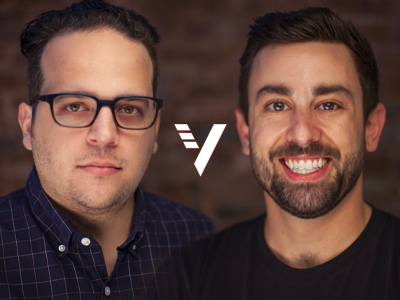Bots and Third-Party Playlists
Chris Nardone (CN) and Dustin Boyer (DB) both started their careers as artist managers and after years of overseeing different marketing efforts, the two joined forces and now handle a variety of digital marketing tasks as a company called Venture Music. We sat down with them to discuss issues pertaining to Spotify promotion, third party playlists and the perils of using streaming bots.

MC:
Tell me about Venture Music and what you guys do.
CN:
So Venture is an idea that I started almost 10 years ago now that really kind of culminated from realizing how much label infrastructure had changed. As a young person being excited about the music industry, I just saw an opportunity to be different and take a different approach and that excited me. Dustin and I started as managers. We started on our own separate paths in all of this but after a decade’s worth of doing management we both came to the same conclusion, which was that being a manager is tough. The job just became so convoluted in terms of what the expectations were and what we should be spending our time doing and so like a lot of managers, we started pivoting and created other ways to make money and take advantage of our skill sets.
I won’t speak for you Dustin, but the marketing part of music is my favorite part of the job. (As Managers) we didn’t get to take that part of the job and get really good at it and focus on it specifically. We now spread our reach to almost 50 different projects and to us it’s this whole space that’s been created out of what’s changed with the label infrastructure. There are now ways for you to actively take an approach in building your career so fast forward, Dustin and I have been friends for a long time and just have always bonded over being a manager. Our paths crossed again last year and we had definitely become a full fledged digital marketing company focused on the music industry but we were still just kind of figuring out what that meant.
DB:
My history goes a little bit into the playlisting and botting world. I was a manager for 10 years, but since 2017 I was focused on doing independent playlisting, which essentially meant people would pay me to go and find playlists and then pitch their music to these playlists. When I first got started with it, it was fairly innocent. It was Joe who worked at Starbucks and had a playlist, and I would just hit him up and ask, “Hey, do you like this song?” And he’d say yes or no and he would add it or not add it but over time, what I noticed more and more is that there were a lot of really suspicious looking playlists and essentially, what was happening is that people would realize they could make money in this, and they also realized the amount of money they could make depends on the engagement on the playlist so they thought this simple solution was to bot those playlists. I sort of started to discover this ecosystem that I didn’t really want to participate in anymore. So I focus more on building my own playlists to focus on Spotify’s algorithm and that was always my end-game. I always wanted to just focus on playlists that were going to build the algorithm. I actually didn’t really care that much about the playlist themselves as long as they were algorithmically healthy. I ended up being able to market and advertise my own playlists that had a bigger impact on the songs overall. That’s when I paired up with Venture and we joined forces.
CN:
It started out as us hiring Dustin. White labeling him as our clients were coming up and saying, “Hey, we really want to take a specific approach towards third-party playlists” and we would say, “Okay, great, we’ve got that option for you”. As there were more and more of these projects we started having conversations about the ecosystem and what we could do. We just kind of realized that we could create a better infrastructure for our clients by pulling all these resources together that we have in creating our own network of playlists but it’s a controllable way, a means to the same end. And it took the uncertainty of knowing how healthy the playlist was and just how real these streams are, we took that entirely into our control, which was amazing.
MC:
The most common request I get from clients is “can you get me more traction on Spotify?”. There are a lot of companies out there who do third-party playlist push and you never quite know what you’re going to get. The potential upside, to me anyway, would be getting enough third party playlists which with a combination of advertising would indicate to Spotify that there is real interest and that your song is performing well enough to put in their algorithmic playlists. In other words you hope you wind up in Discover Weekly or your Release Radar.
How do you successfully vet somebody who can get you healthy playlists and how do you know if you’re on a bot playlist?
DB:
So I think it’s easier to pinpoint red flags. I mean, look, at the end of the day, there’s always going to be an intrinsic amount of trust that you have to put into somebody that you’re hiring and there’s no guaranteed way to understand whether something is truly botted or truly trustworthy. But I think that there’s certain red flags that we try to point out to our clients because at this point we no longer do third-party playlisting. Many of our clients are still on the hunt for somebody that can pitch playlists, and there’s really a lot of pitfalls, not even just in botting and finding those people. But one of the bigger red flags that we really try to point out is anytime a company guarantees you streams. There is this logic that a lot of people who guarantee streams are like, “Well, we’ll run ads to these playlists or we’ll have your song in this playlist as long as it takes to guarantee those streams”.
Our problem with that is that we’ve probably run well over $200,000 or $300,000 worth of ad spends around playlists, and we understand how people consume a playlist. We understand that any playlist that contains a large number of unknown artists typically doesn’t perform at the level that somebody can guarantee. Actually, you know what’s funny? On my Facebook right now I have this menu that’s pulled up from somebody randomly advertising their thing, and they’re guaranteeing 50,000 streams for $100 and we know for a fact that that is impossible. That is just not a number that makes sense. Even if you buy into somebody who isn’t botting and they’re running ads and they have this massive playlist or two that they’re just dumping you in and running ads. Algorithmically that’s gonna harm you as well. That’s not great for your account.
I think the bigger point here is that they’re looking at the streams. I mean, look, there’s a problem with the industry as a whole that they look at these streams as a metric for success, but streams are easy. Understanding how to find people that are truly interested in the music and how to build streams in a way that you can retarget those people, that’s the thing that artists need to be focused on. As soon as they focus on that the botting just goes away because the botting sort of just serves that bottom line, that symptom of like “we need as many streams as we can get”.
That’s a really big red flag: guarantees. The other thing is that any time you’re vetting somebody, you need to ask the question of like “Can you give me some playlists that you’d pitch that would make sense for my music?” because the other side of it, too, is that if it’s a really generic playlist containing lots of genres, even if you’re like, “I’m not sure if this is botted” you don’t want to be on that playlist anyway. It’s a really easy way to be like, “Okay, if this is the best you can give me in terms of playlists you’re gonna pitch then I don’t want to go this way”.
Honestly, outside of those two things, it’s really tough. I mean, recommendations, people that have worked with those people before, clarity on a lot of these playlisters. Their websites are very vague, and they’re hidden behind different walls and different passwords and they do this because essentially, if they ever get caught, they want to be able to just start a whole new company without you really understanding who you’re talking to and who’s behind that wall.
MC:
Interesting. Tell me more about the downsides of botting, because there is pressure for independent artists to appear more formidable and Spotify’s numbers are obviously forward facing. But my understanding is that you could do real harm to your account including getting it taken down and then really sort of getting your account flagged to prevent algorithmic playlist or editorial playlists in the future. Is that accurate?
DB:
100%. And I want to be real here, there’s a real market that people sit down in the music industry and say “we actually want bots” and where it actually makes sense, which I never do it, more major label artists or really larger artists find value is when they are expecting 4M streams in week 1 but in order to hit Billboard they need 4.8M, so they go and hire a botter to be like, “Look, just push us over the edge” and in that capacity, those bots do very little harm to the overall account. To the industry as a whole, there’s a lot of harm but they see the value.
What’s happening is that those people who are selling those bots are then turning around and selling them to smaller artists and saying like, “Hey, I just worked with the major label artists” and that builds this intrinsic trust. Then as soon as they start botting in the small accounts, not only does the algorithm get damaged. I mean, I’m looking at one of our clients accounts that we just started with that bought into bots. He’s a pop singer/songwriter and his top genre, according to Spotify algorithm, is hip hop. So it just collects the wrong information in the wrong way and it takes a ton more data just to correct it. But on top of it, if the data gets big enough, Spotify will outright ban your account. I mean, we’re dealing with a new client right now that we haven’t even really begun with where they have a song that they accidentally got botted, and they want to re-release it but Spotify won’t let them in any capacity, even with another ISRC because the data behind it is so bad that they’re just not allowing it. We’ve worked with artists that have had their accounts permanently banned. Them as artists. They’ve been banned from Spotify forever. So there are really dramatic outcomes to this that people/artists they’re paying for. They’re paying $2,000 to $10,000, whatever it is that these scammers can get out of them, for the privilege of being banned on Spotify.
MC:
So if it’s not botting and you’re looking for a healthy Spotify strategy, other than having a robust overall marketing strategy for your music, are there things that you advise clients to do? Be that advertising or something as simple as Submit Hub. Are there things that are sort of best practices for getting your plays up on Spotify?
DB:
I guess there’s one more thing I did want to mention and you mentioned Submit Hub. There’s two platforms, but many of them exist, there are two I want to mention: Submit Hub and Playlist Push, in particular, who have always tried their best to make sure they vet any playlists that are botted. Now I know that Submit Hub is literally looking at playlists and being like “How did you build this” before you allow them to submit. At the end of the day, I would really just suggest artists not submit on there because the way the botting companies work is that they don’t really exist. It’s all one big shell game that essentially they build these playlists up, they submit them to Submit Hub, Playlist Push, they run ads until they get taken down by Spotify, and then they start all over again. There’s just no way for any one company to keep up with it. So in my opinion, you’re better off just avoiding those companies all together.
I love the guys that run them, I’ve met them and they’re good guys, and I know they’re trying to do this in earnest, but I just think it’s not worth the risk for a lot of artists. At the end of the day, I think it really should always be focused on the algorithm, because the algorithm and what I learned through my playlisting efforts is always going to do more damage early on than any one playlist because it’s permanent and it can snowball your whole catalog. So my suggestion is this overall, whatever you put your music on, quality is better than quantity. Don’t stick your music on a playlist if it doesn’t make sense because it’s going to do more damage. You might get an extra 1,000 streams/2,000 streams in that week but you’re going to lose 10,000 streams in the long run of 20,000 streams on the algorithm, so play it safe. Be as surgical as possible. In fact, we work with a client with a completely clean account and it’s the most exciting thing because all you have to do is give a little bit of a push in the right direction and the algorithm just snowballs like crazy. But once you put bad data into an account, it is almost nearly impossible to recover from it. So focus on the algorithm first and foremost when you’re running ads when you’re putting the song and playlist, that’s the number one thing I would suggest.
CN:
As much as we would like to pretend everyone with an album and a single has the budget to hire an effective digital marketing team but the reality is that most people are just bootstrapping in a way that you know we’re very familiar with. I think it’s also important to know that there are plenty of curators and playlists out there that are very real and people that are just still very passionate about making sure that that good music is being discovered and Venture is a great example in terms of having an open submission platform. We always listen to things that are sent to us, even if they’re not clients and there are ways for you to go out and find those playlists and those people who will support you. It just takes the effort of actually putting in the effort of vetting more than anything. We have playlists with a few thousand followers that can do wonders in terms of putting and positioning a client and the right place with the right similar artists and making it a genuine translation to Discover Weekly or whatever other discovery opportunity there is. There’s still effort and just hustle that could be put into this outside of spending money. It just becomes chaos and requires some effort, but it’s still there.
For more on Venture Music, check out their website: https://www.venturemusic.com/
Venture wrote another blog post on the subject which you can read below:
www.venturemusic.com/blog/








